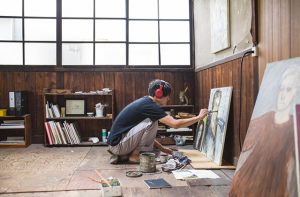Early Childhood Sydney course essentially refers to teachingchildren up to the age of eight where-in they go through the most rapid phase of growth and development. Early childhood education centers on ‘learning through play’or the ‘play-way method’. By providing a hands-on, interactive environment in a practical setting where-in children learn while playing.
Early childhood education is necessary for healthy development and nurturing of important foundations in a child’s social skills, sharing, learning how to get along with peers, perception of the world, self-esteem, moral outlook and cognitive skills.
Toddler education at home, Preschool, Playschool, Nursery, Daycare, Kindergarten, Montessori and Elementary school education all form part of early childhood education. Classrooms in early childhood education are often very lively with brightly decorated posters of the alphabet, numbers, tables, maps, body parts, vehicles, fruits and student art work to stimulate an exciting learning environment. Classrooms are often interactive with smaller class sizes and teacher-student ratios.
Infant/toddler education at home: Children learn a lot about themselves and the world around them in the first few years of their life with parents being their first teachers. Parents teach them how to speak, how to walk, how to feed themselves, how to wear their clothes and give them toilet training. They teach them the alphabet, numbers, shapes, colors and how to count and spell simple words. However for healthy development, children need active stimulation and interaction with others and therefore early childhood education is plays an important role.
Preschool: This is often the first formal learning environment where children learn to interact with children their age, develops cognitive skills by stimulation of their curiosity and imagination. In a classroom setting children learn to apply what their parents taught them and have interactions with people outside their family with teachers guiding them through this transition and overseeing their adjustment. Most preschools have a nap time in their schedule or a half day schedule to cater to a child’s fatigue after hours of playing and learning and a snack time to re-energize them and also teach them table manners in the process.
Kindergarten: There is heavy focuses on social development and peer-to-peer interactions, with greater emphasis on fundamental academics than preschool. In preschool children learn how to count and in kindergarten they progress to learning the basics of addition and subtraction. While they learn about colors in preschool and they learn to blend those colors to make new ones in kindergarten. They learn the alphabet in preschool, and learn how to spell and string basic words into simple sentences in kindergarten.
Elementary School: The first 3 years in elementary school up to class 3 (age 8) also come under early childhood education. In elementary school children further learn the tables, bigger words and new concepts that develop into different academic subjects that they will learn across the rest of their educational journey.
Daycare: This type of childcare doesn’t have much emphasis on learning rather to help working parents, however children often pick up language and communication skills interacting with other children.



